Abstract
Aphasia is a silent communication disorder; many people don’t know about it and can’t easily recognize it, let alone the different types of aphasia that exist and their various associated struggles. This fictional comic, using techniques inspired by Scott McCloud’s Understanding Comics, details the life of an aphasia patient and the challenges she faces alongside her husband (who is also her caregiver) for everyday tasks. Over the past few months, I’ve been virtually working with aphasia patients at the Houston Aphasia Recovery Center weekly to help improve their communication skills by facilitating conversations and activities. My time spent with them has inspired me to create this comic, in order to raise awareness about aphasia in general by discussing facts and statistics, and in particular by creating a fictional character with specific attributes of Broca’s aphasia. I have used my observations from my time with HARC to create the fictional character of this comic, in addition to the attitudes of her caregiver. I then gradually developed a storyline based on an aphasia patient’s daily activities, using what I’ve learned from the organization’s directors. As the main character goes to the grocery store and interacts with people, the reader begins to get a glimpse of what it’s like for an aphasia patient to communicate with others, especially strangers. Later, I included my specific interactions with aphasia patients in the scene where the main character attends virtual programs at HARC. I then introduce her husband, the caregiver, who evidently has a very stressful life. Lastly, I illustrated the various emotions of frustration felt by the main character as she practices speaking on her own, and how her husband comes to help her. Overall, this comic combines powerful words and illustrations to emphasize the precious nature of communication and the ability to be understood.
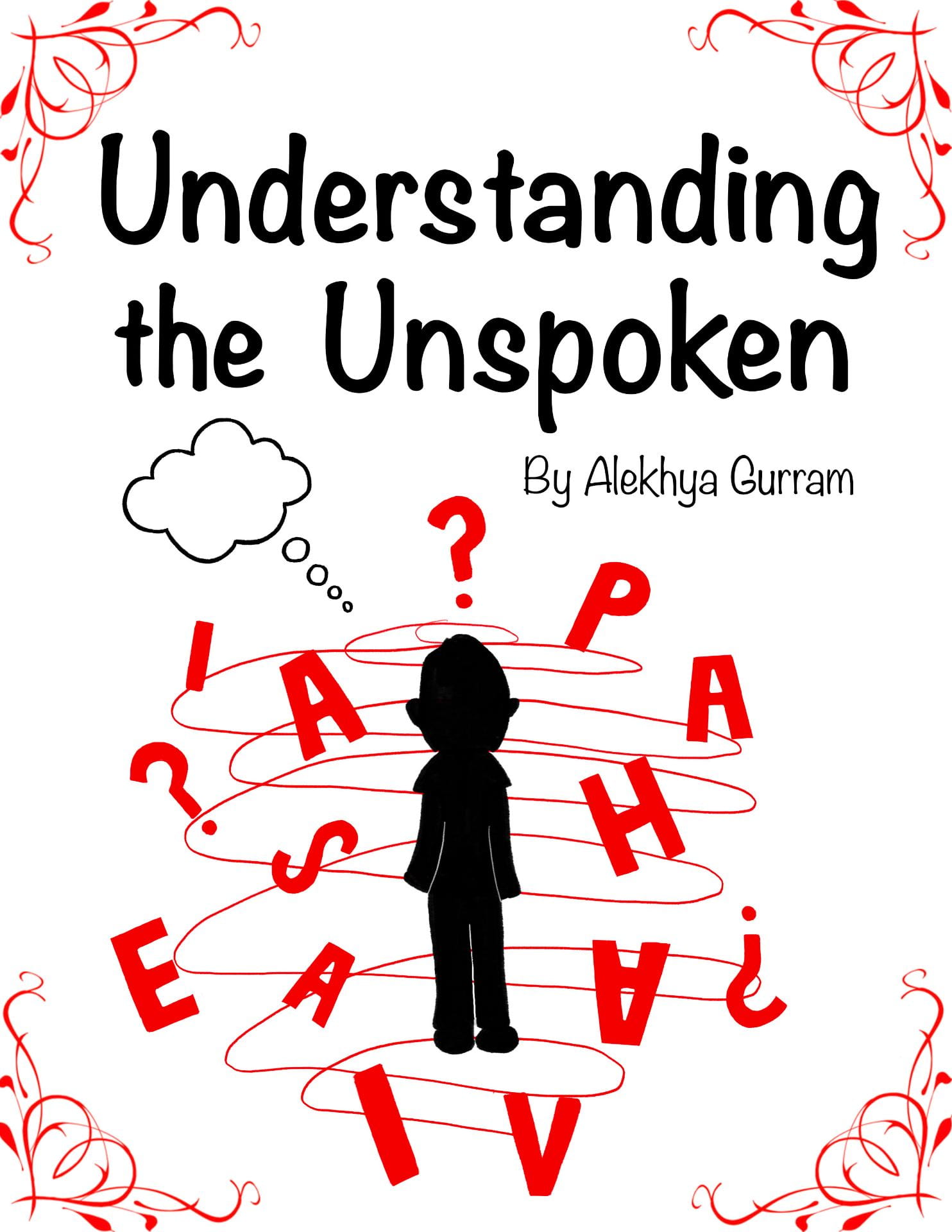


Scene 1


Scene 2
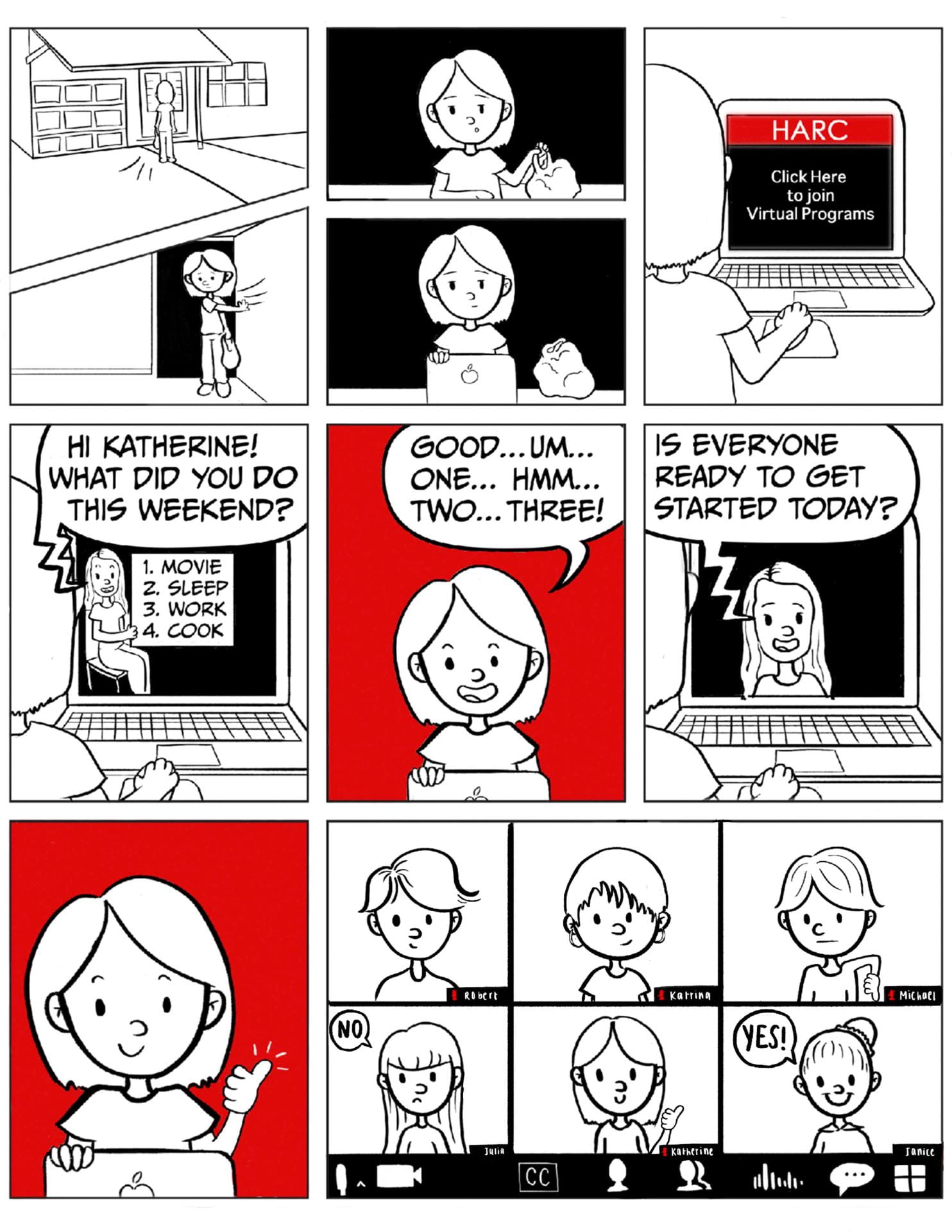

Scene 3
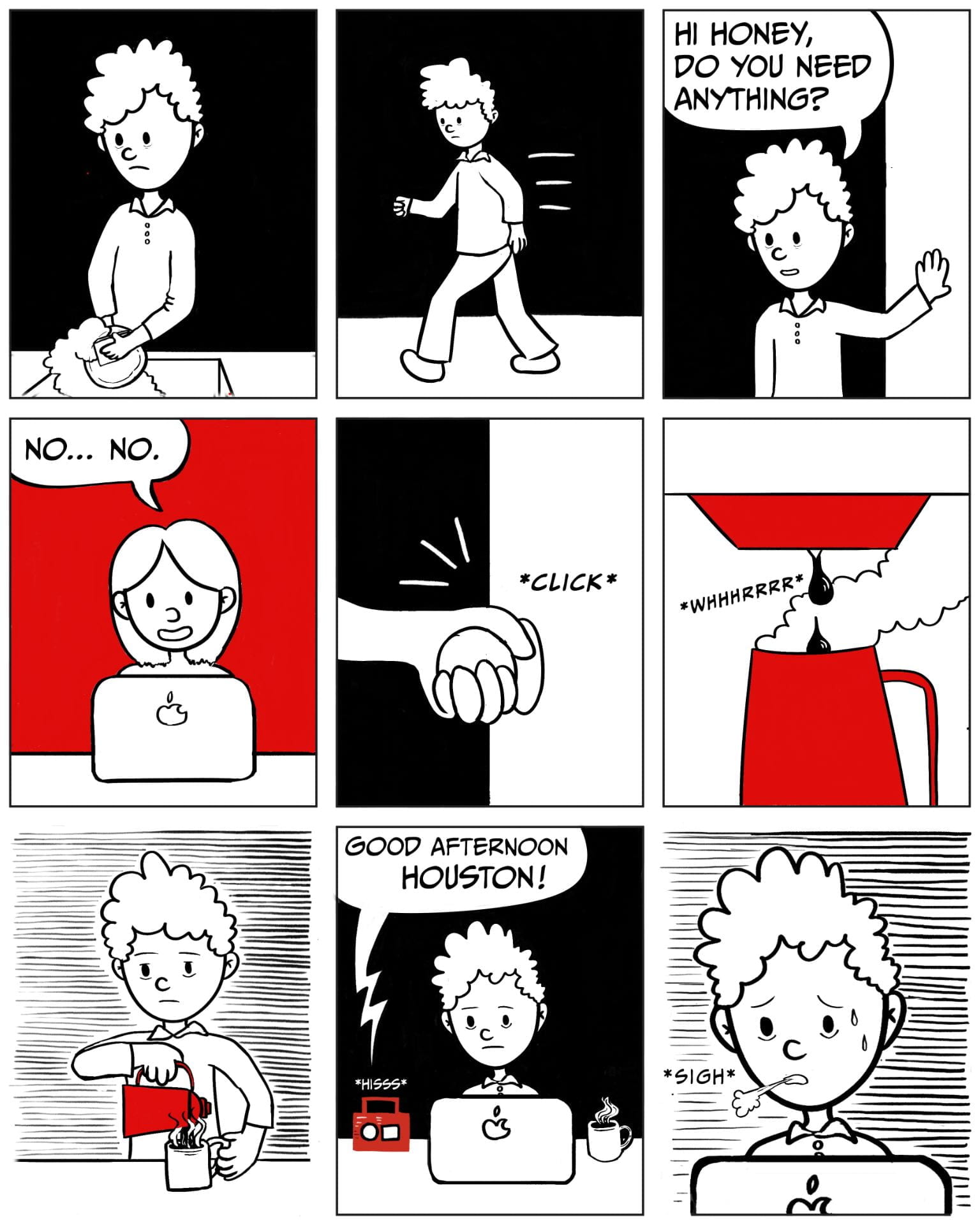
Scene 4
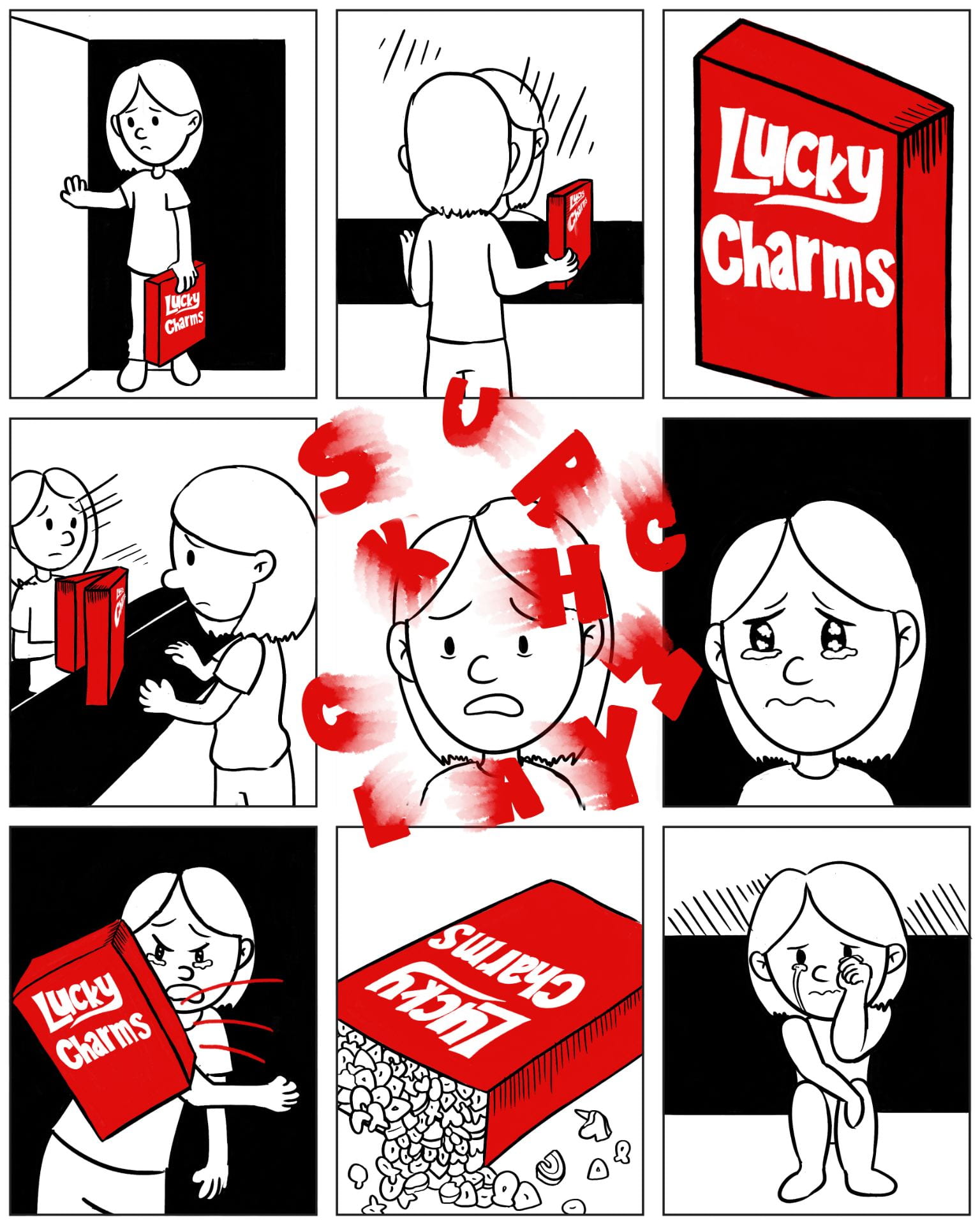
Scene 5
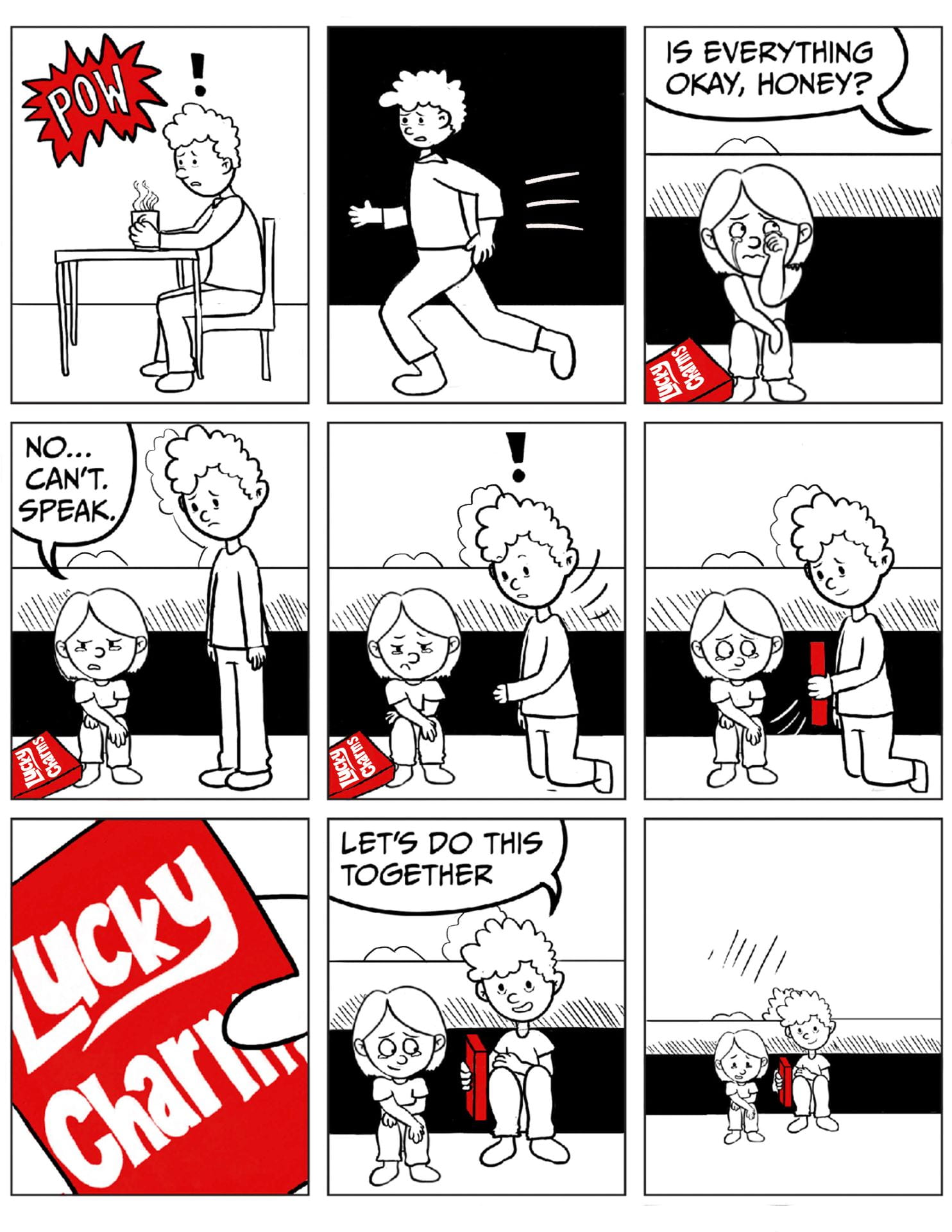

Author’s Note:
Although aphasia patients must face the daily challenges of their communication disorders, they are not broken.
They have hope.
Each aphasia patient understands his or her respective communication disorder differently and has various ways of dealing with it. The aphasia recovery process does not utilize a one size fits all approach. Rather than generalizing aphasia patients’ daily experiences and feelings about aphasia, my intention was to educate my audience on the general conceptual ideas of aphasia. However, I also created unique attributes about the main and side characters’ experiences with aphasia. Through this, I intended to show how each patient has different levels of difficulty and frustration with language communication, as well as how caregivers’ exhaustion and patience levels vary based on each patient. I hope that through sufficient awareness, aphasia patients will gradually become more acknowledged by the public and provided with adequate resources.
References:
“Aphasia Fact Sheet.” National Aphasia Association, 31 July 2018, www.aphasia.org/aphasia-resources/aphasia-factsheet/.
Bleakley, Alan, and Robert Marshall. “Can the Science of Communication Inform the Art of the Medical Humanities?” Medical Education, vol. 47, no. 2, 2013, pp. 126–133.
Dellosso, Daniel. “Cultural Sensitivity in Healthcare.” 2016, doi:10.33015/dominican.edu/2016.hcs.st.02.
Green, M. J., and K. R. Myers. “Graphic Medicine: Use of Comics in Medical Education and Patient Care.” BMJ, vol. 340, no. 2, 3 March 2010, doi:10.1136/bmj.c863.
Gurram, Alekhya. HARC Personal Reflections, 2020.
Jacyna, L. Stephen. The Neurological Patient in History. Univ. of Rochester Press, 2014.
Kleinman, Arthur. “Caregiving: the Odyssey of Becoming More Human.” The Lancet, vol. 373, 9660, 2009.
McCloud, Scott, and Mark Martin. Understanding Comics: The Invisible Art. William Morrow, HarperCollinsPublishers, 2018.
Scott, P A. “The Relationship between the Arts and Medicine.” Medical Humanities, vol. 26, no. 1, 2000, pp. 3–8., doi:10.1136/mh.26.1.3.
Simmons-Mackie, Nina. Aphasia in North America. AphasiaAccess, 2018.
Trudeau, G. B. Signature Wound: Rocking TBI. Andrews McMeel Publishing, LLC, 2010.
Williams, Ian. The Bad Doctor. Myriad Editions, 2015.